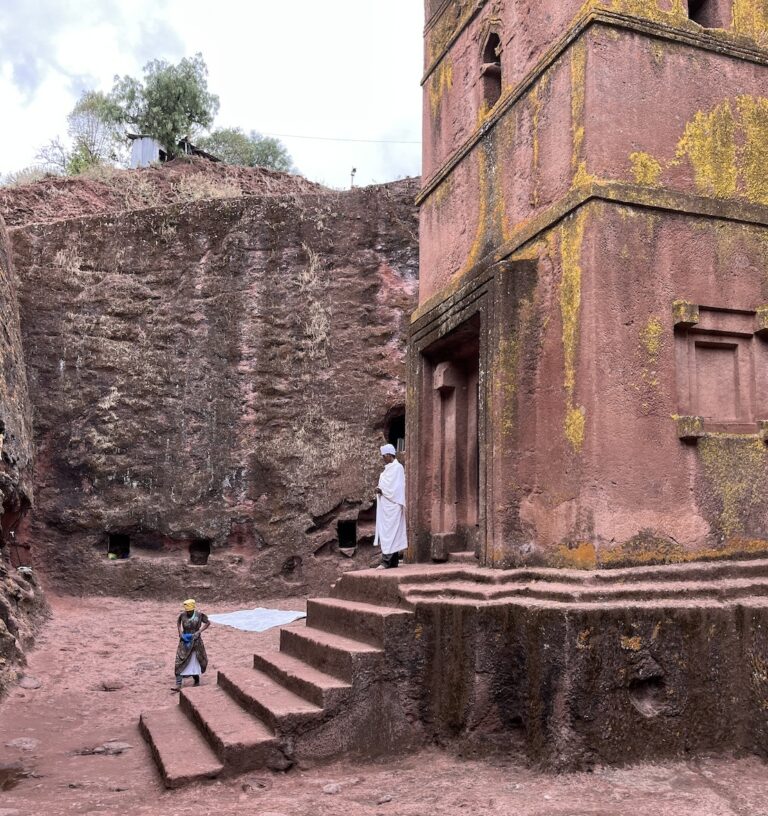Misiones Province, North East Argentina
Misiones is a wonder!!! by far on my top three places around the world for many reasons, which I will highlight below. Misiones has one of the largest waterfall systems in the world called “Cataratas del Iguazu” which means Iguazu Waterfalls. Iguazu Falls, it is one of the Unesco Heritage List of most incredible sites.
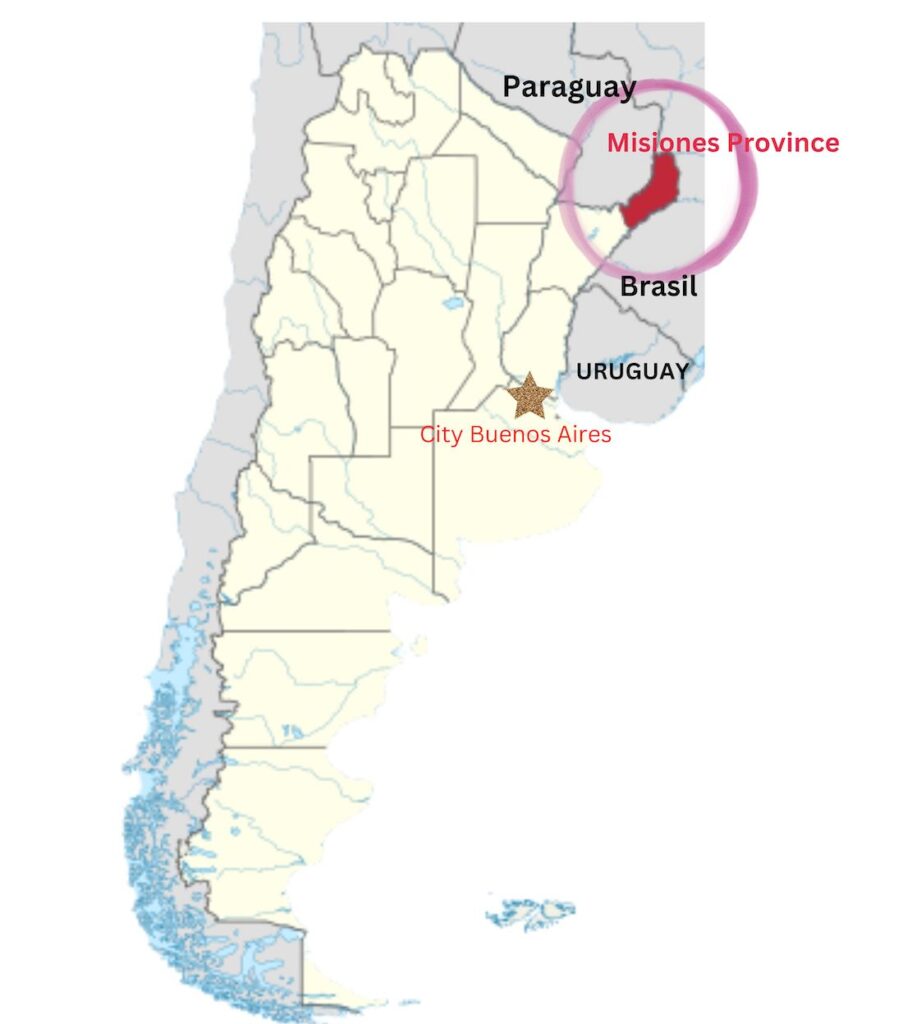
Misiones is located in the Northeastern corner of Argentina and it borders Brazil and Paraguay. The location gives the province unique cultural, geographical, and historical characteristics.
This province was populated by nomadic indigenous tribes that originated many years ago. The Guarani indigenous people, the Tupi-Guarani, came to the province around the year 1000 and originated from the Amazon. There were many communities but now Mbyá y Cainguá are mostly present. These communities are incredibly rich in their culture and history.
It is an amazing province, with hills, red soils developed under a subtropical climate, and beautiful rainforest vegetation, full of waterfalls, small and large, it is a real paradise. All this beauty is the place of European immigrants that is now under the shadow of a less developed province with high poverty rates which still makes it amazing!
What offers the Province of Misiones, Argentina? an incredibly unique place and culture
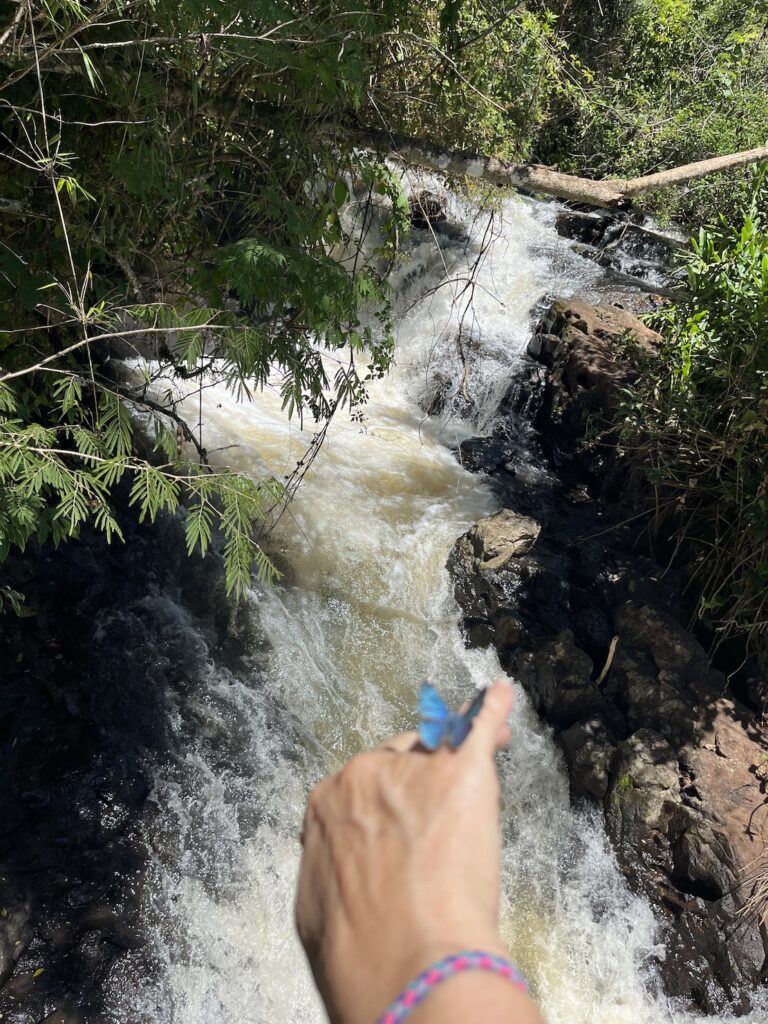
TRANSPORTATION all kinds
How to get there!!? well, I go by bus why?? because I looove to see the small towns, and local people traveling and hearing their stories. In a country that is so large with a sparse population (other than Buenos Aires), it feels like a major discovery venturing out.
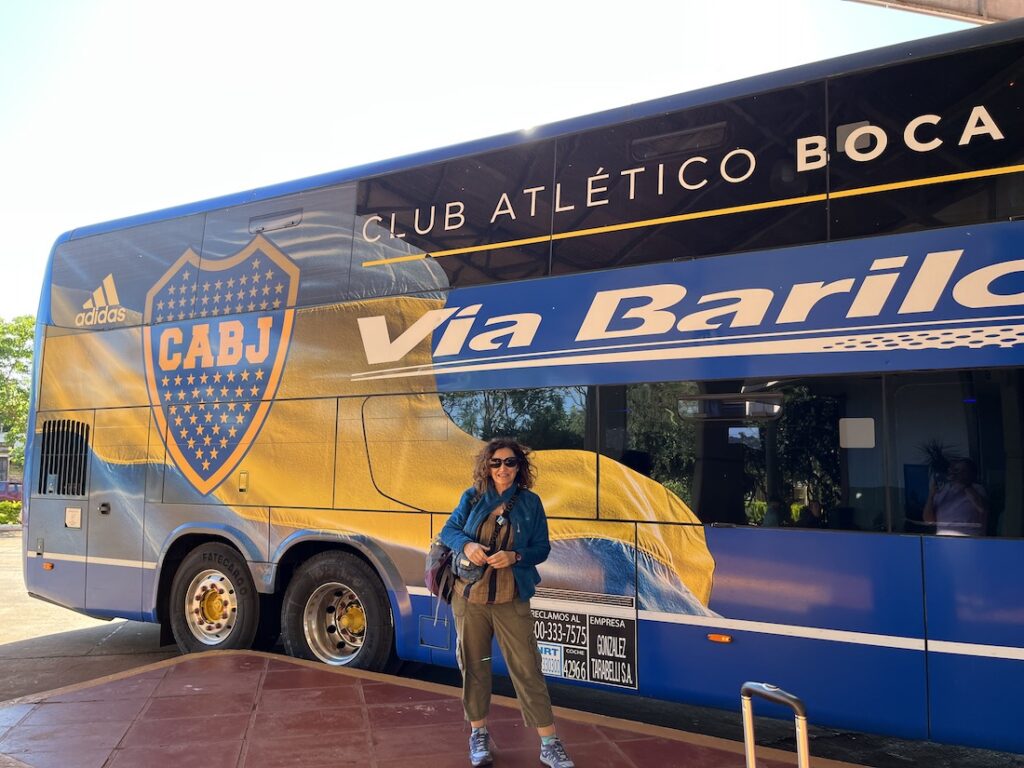
There are so so many things you can do and visit in the province! The city of Posadas, Ruinas de San Ignacio, Saltos del Mocona, Hummingbird Park, Provincial Teyú Cuaré Park, etc. You can spend a long time in the province if you are up for a fun off-the-grid journey! if you like water as much as I do, Misiones has so many “smaller” waterfalls (called Saltos) that are amazing!! and with so much untouched vegetation all around!
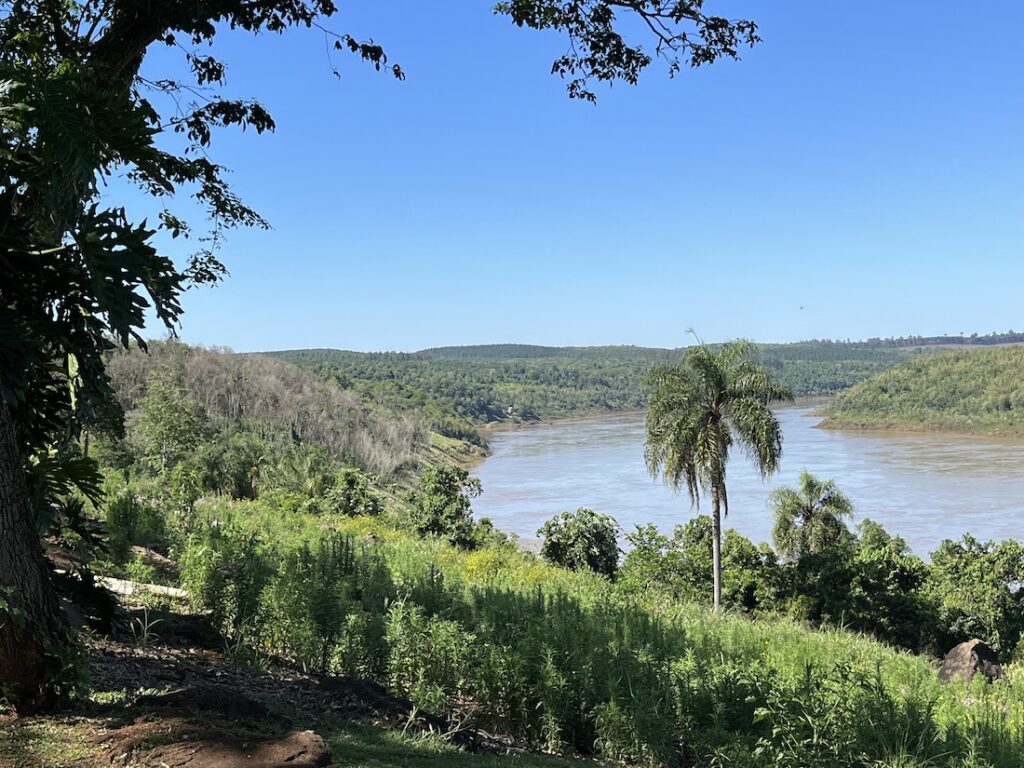
Here, as with anything else, I just highlight my own off-the-grid (other than the Iguazu Falls) ventures
Puerto Esperanza
It is a VERY small town where I went to do community work and to help a local organization. From Puerto Esperanza, don’t confuse it with another Puerto city/town, I travel around. Puerto Esperanza ended up being a quaint little town with no tourists, and I used it as a point from where to venture out. However, this small town is like many in the country so it is worth noting.
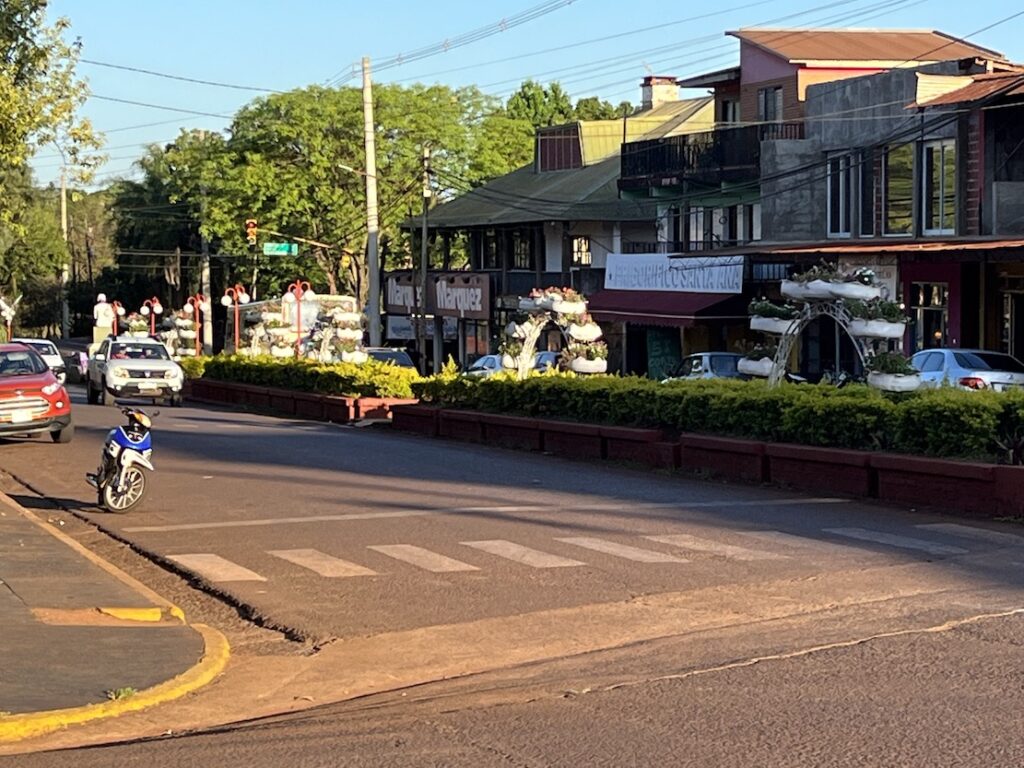
SAFE very safe! so safe that everyone knows you are not from the place!! Lucky enough to land here during a Sovereignty Tradition Festival with everyone from the small town showing up in a lounge chair to watch the typical folklore dances:-)) lovely!
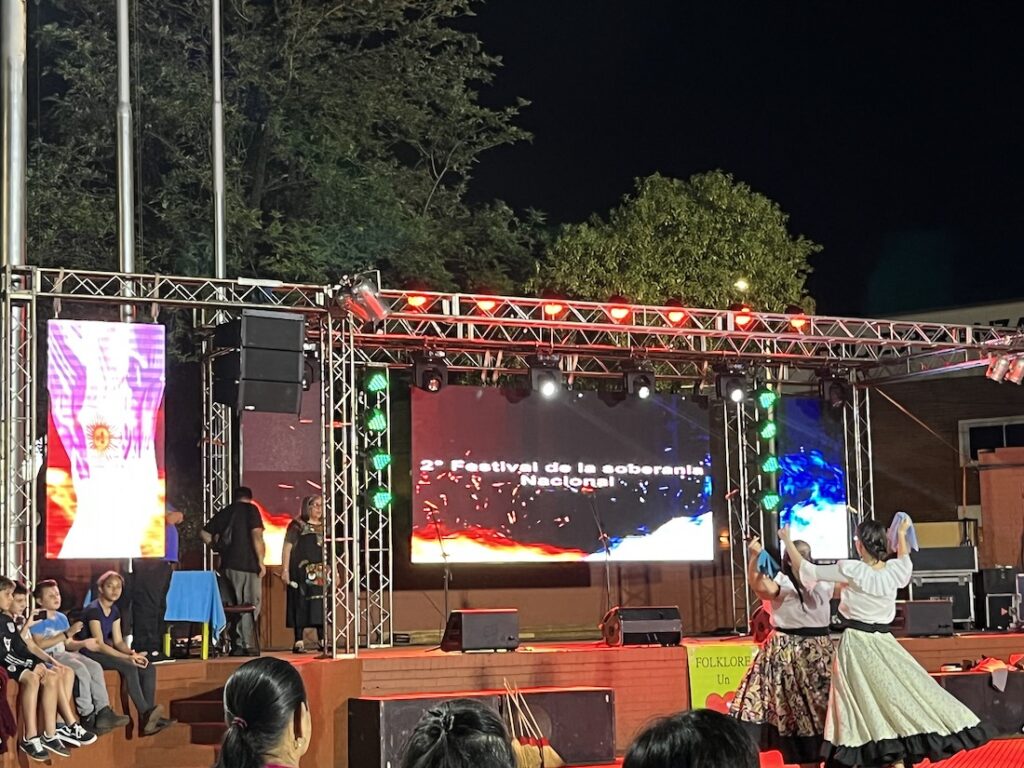
A small town can portray life as a tight-knit community where people mostly know each other and it is easier to meet new people. In general, in a small town people are polite (no doubt much more than in a big city) and kind.
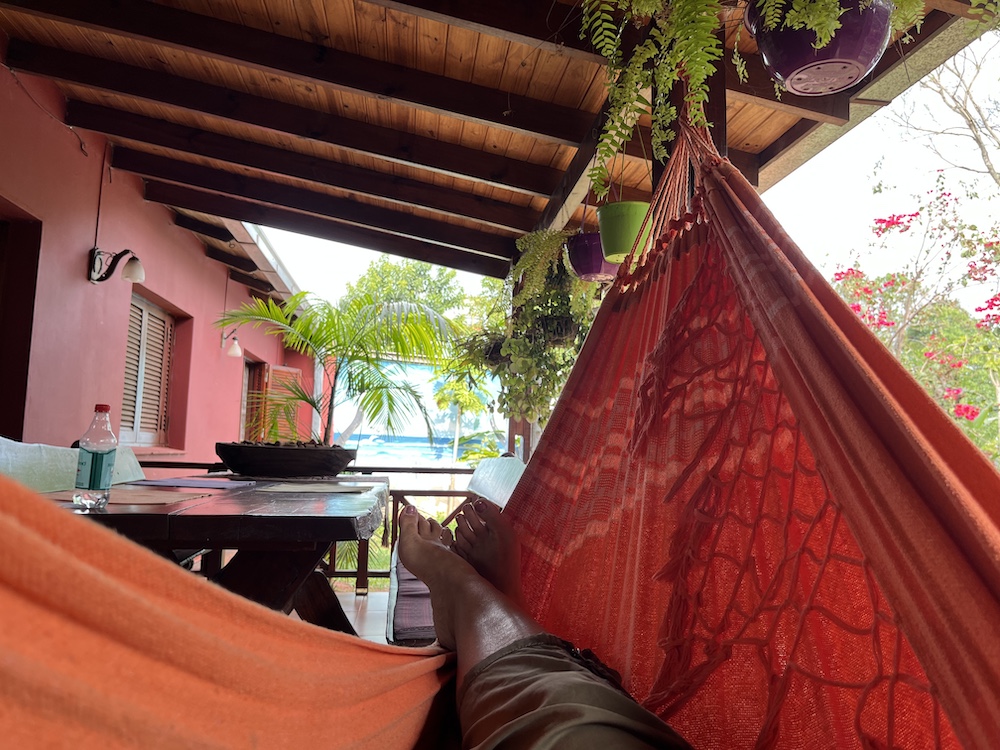
One of the highlights of the town is that there is an obvious awareness about animal welfare. At the Zoonotic Center, a center where there is control about infectious diseases that are transmitted between species from animals to humans (or from humans to animals). There is a nice mural in the middle of the town that says “No los abandones” (it means don’t abandon them)cats and dogs. There is a lot of animal neglect in the countryside.
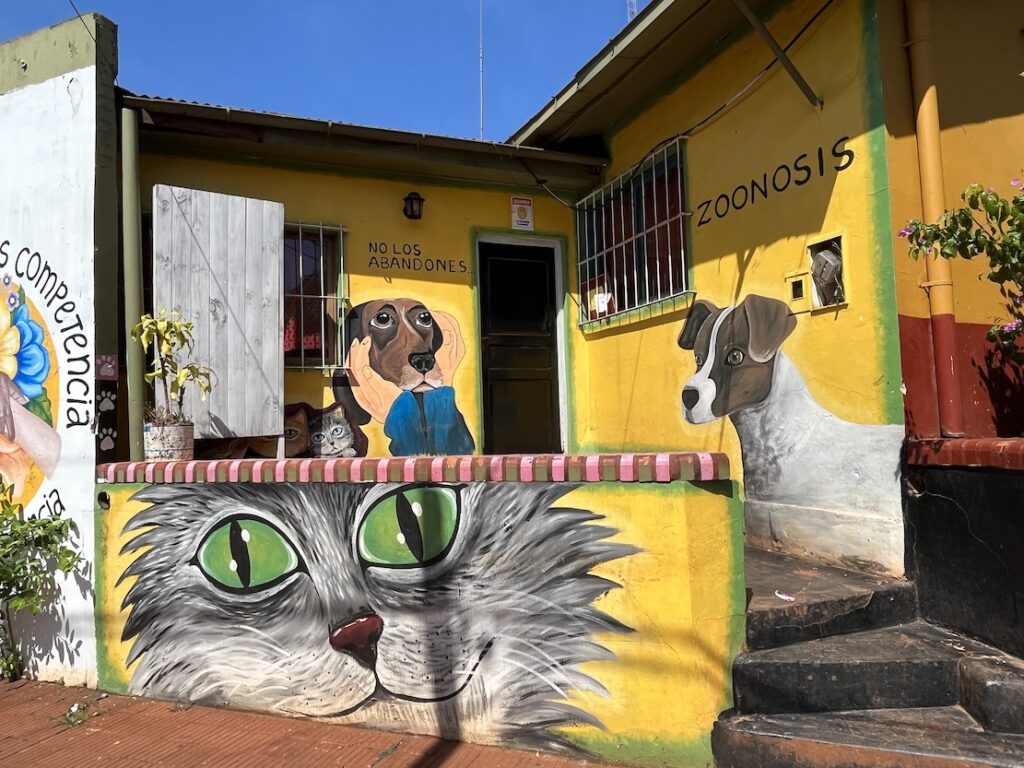
As an animal lover, I was thrilled to see at the front of the Zoonosis (a health office dedicated to education and treatment of transmission of diseases between animals and people) the paintings of animals! Protect and take care of your animals always!
If you’re an adventurous explorer like me, you’ll be thrilled to discover the abundance of captivating towns in Misiones. The friendly locals make the experience even more enjoyable as you venture through numerous fascinating places. Starting from Puerto Esperanza, you have the freedom to explore any corner of the province. Personally, I was fortunate enough to find an incredible Airbnb that not only provided accommodation but also guided me to incredible destinations. However, if you’re on a budget (like I usually am), taking the bus to other towns is a more affordable option. Alternatively, you can opt for a taxi, but keep in mind it might be a bit costly. Regardless, there are endless possibilities awaiting your exploration in Misiones!
YOGA
Yes, Yoga in the province is available even in the smallest places!!
Yoga in Puerto Esperanza, Wanda and Puerto Iguazu available! See Yoga in Misiones Argentina soon!!
Wanda
The town of Wanda and Wanda Mines
“Wanda,” established this town. Its bustling industries revolve around forestry, mining, and the cultivation of yerba mate, a delightful herbal beverage derived from a South American plant. The rich tapestry of Polish, German, and Ukrainian influences from the 1800s and 1900s has left an indelible mark on this province, evident in every corner of this vibrant community.
More about yerba mate, click here
How were the mines found? well, a family went to buy land to plant yerba mate and they were surprised by finding that there were gems on their land. The mines located at the banks of Paraná River are truly worth visiting; a mine tour provides insights into the place’s history and geography. The Wanda mine cuts, removes, and produces precious stones and it is one of the many mines around the area.
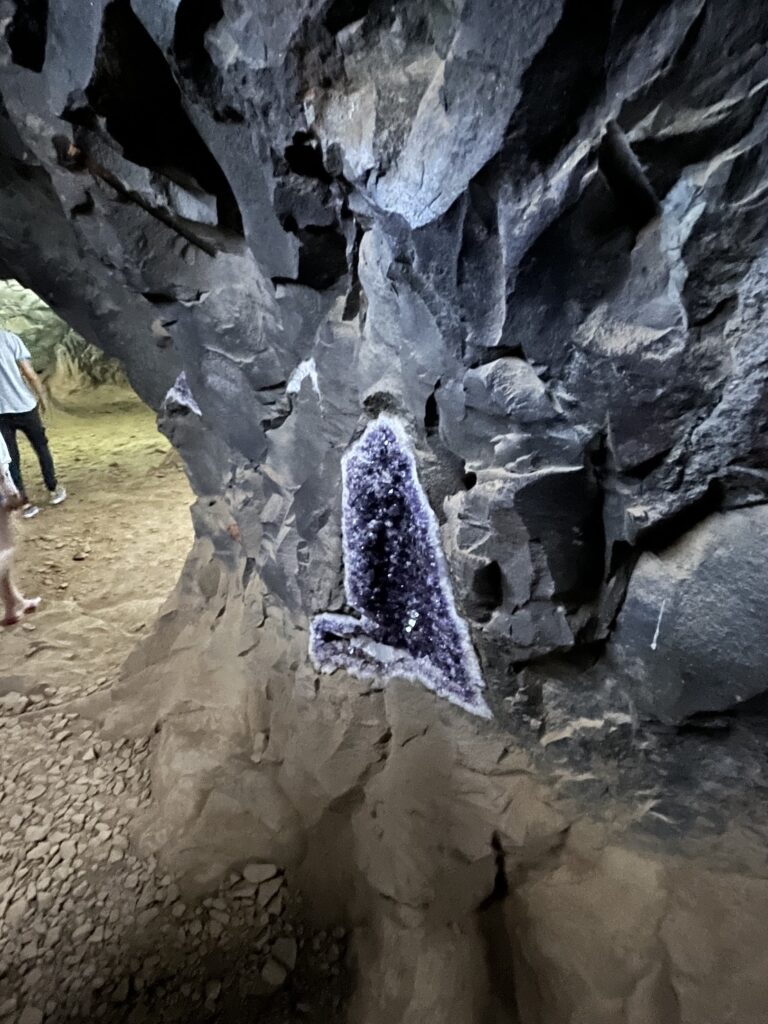
I had a very knowledgeable guide and he answered all of the group’s questions! Remember to leave a tip if you feel he or she did a good job! Totally worth visiting I learned a lot about stones and the whole area.
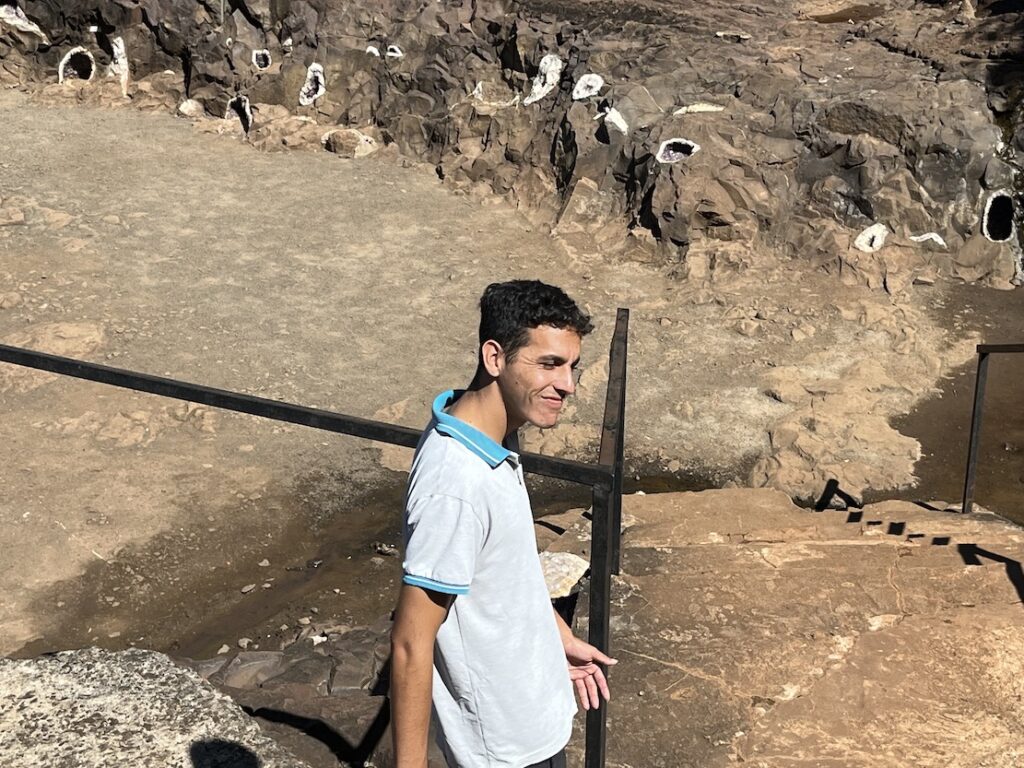
You will see shops at the mines but the prices are overpriced, however, be careful buying from the streets since they are usually fake ones (other than just rocks).
OTHER THINGS TO DO IN WANDA
SALTOS Waterfalls
I need to highlight that my concept of breathtaking is a place that keeps its natural environment as close as possible surprising me with its natural beauty and biodiversity. Simplicity to me is the raw sophistication of the environment created to keep humanity safe.
Misiones is a treasure trove of mesmerizing Saltos, which are essentially enchanting water jumps. These Saltos come in various sizes, ranging from towering heights to more petite ones, but each one is guaranteed to leave you in awe. Among these natural wonders, the Saltos del Moconá stand out, nestled amidst the untouched beauty of WANDA. However, the crown jewel of WANDA’s tourist attractions is undoubtedly the majestic SALTO TUPÍ CUÁ. Situated along a natural creek, this breathtaking waterfall is a must-visit for any traveler seeking an unforgettable experience amidst pristine nature.
Tupí Cuá Wanda, Argentina
Hidden amidst the enchanting landscapes of Salto Tupí Cuá lies a charming nature-like simple resort-like haven. But that’s not all! Venture further into the wilderness and prepare to be mesmerized by a series of cascading waterfalls that will leave you in awe. I stumbled upon this gem while traveling through the Misiones province, catching a glimpse of its inviting sign from the bus window. Along the roadside, a quaint lodge awaits, offering a taste of humble living intertwined with the captivating wonders of Mother Nature. It’s an experience not to be missed!
Here below is the small resort type of SALTO BONITO
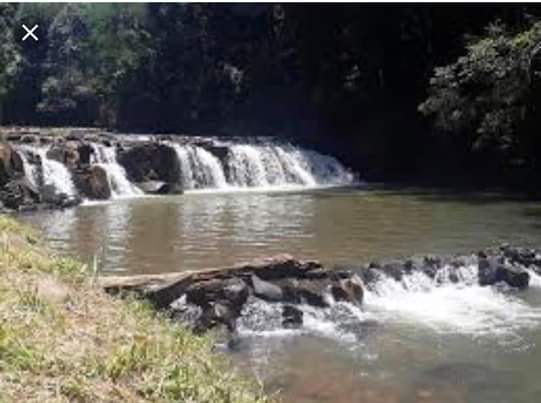
So many waterfalls and saltos (smaller waterfalls) that will make your venture in Misiones a true dream if you like lush unspoiled nature
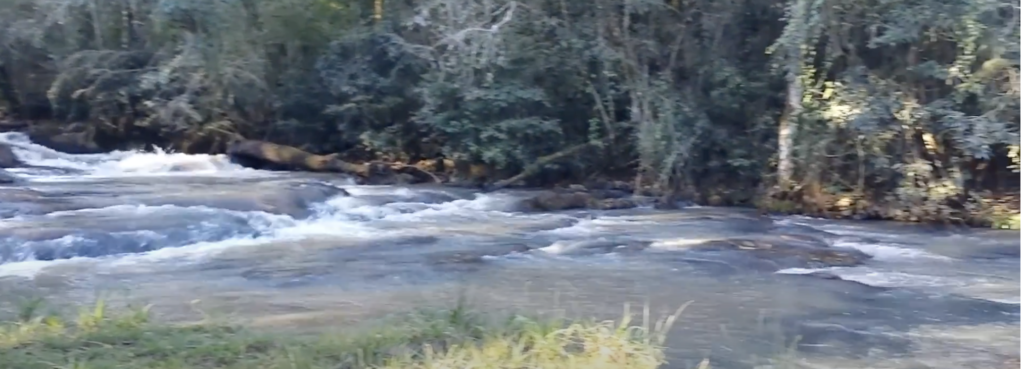
Chacra Medicinal Ñasaindy
A medicinal farm is a great place to detox and to re-energize. I landed here thanks to the information from my landlady in Puerto Esperanza. She brought me here to release some stress and it was a fantastic experience. These people are native to the land, and generations of knowledge are passed from the natives as a way to transmit their culture.
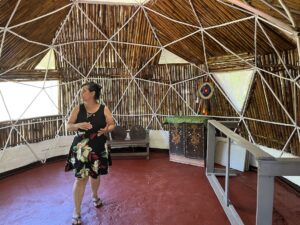
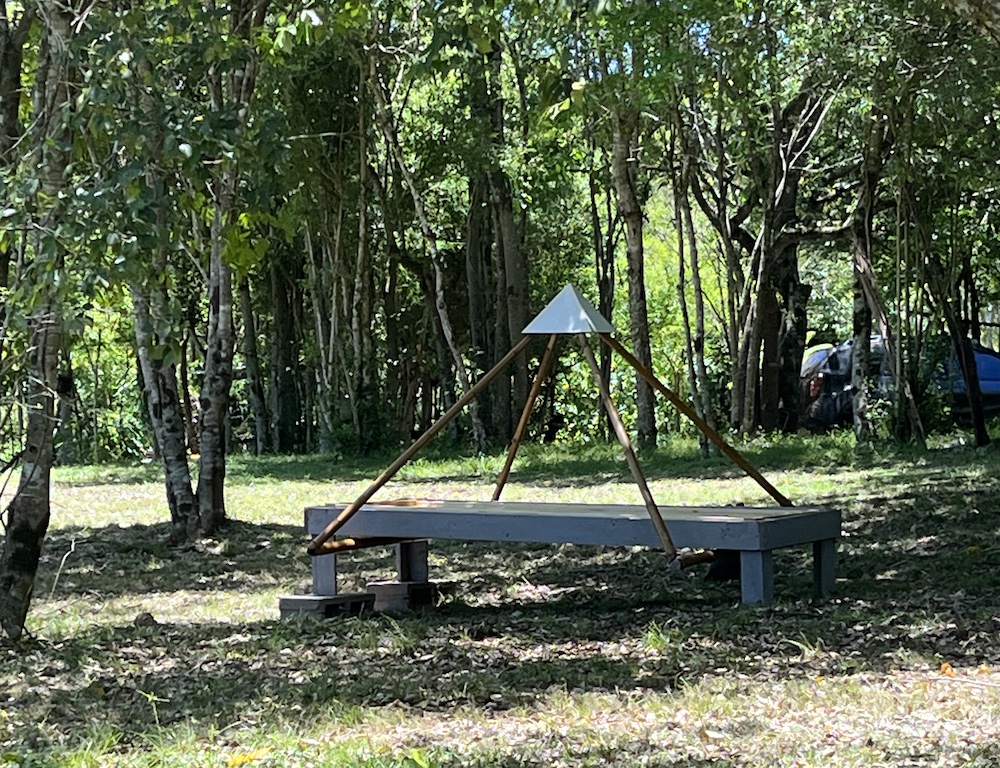
The location is not easy to find so you will have to make special arrangements to get there. The ñasaindy site is an educational and healing center where many ancient practices and ancient rituals are taught and practiced. More info about the center is on the Yoga section of the site.
PUERTO IGUAZU ARGENTINA SIDE
Such an interesting place! a city/town in the northeast of Argentina, located around a 16-hour drive from the capital city of Buenos Aires. It is a pretty rundown city, a world apart from the overdeveloped Brazilian side. It is a true shame in a region with such a big natural wonder to have the city so undeveloped. However, If you like rugged places where nature is not too disturbed and you get a true feeling for a small safe provincial town, the Argentina side then will be your preferred spot.
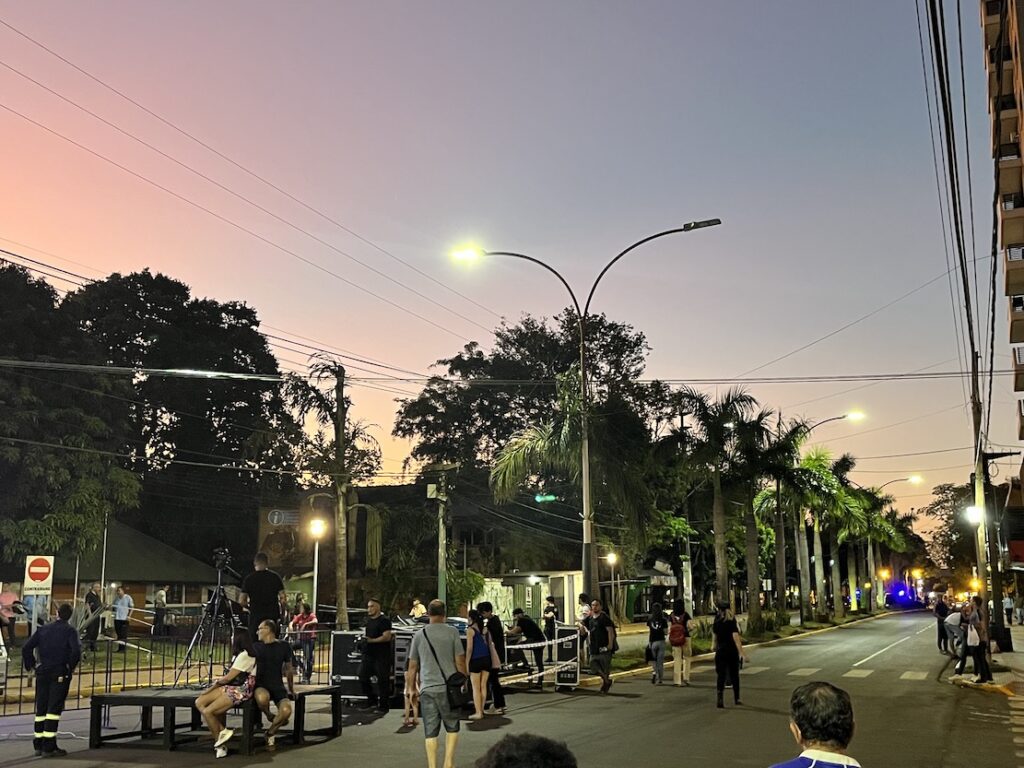
If you want to go from Puerto Iguazu in Argentina to Foz do Iguacu, just across the river on the Brazilian side of the Falls, you can take a cheap bus at the terminal station in the city center. Taking the bus will be much better than going in your car and facing hours of waiting in line at immigration offices.
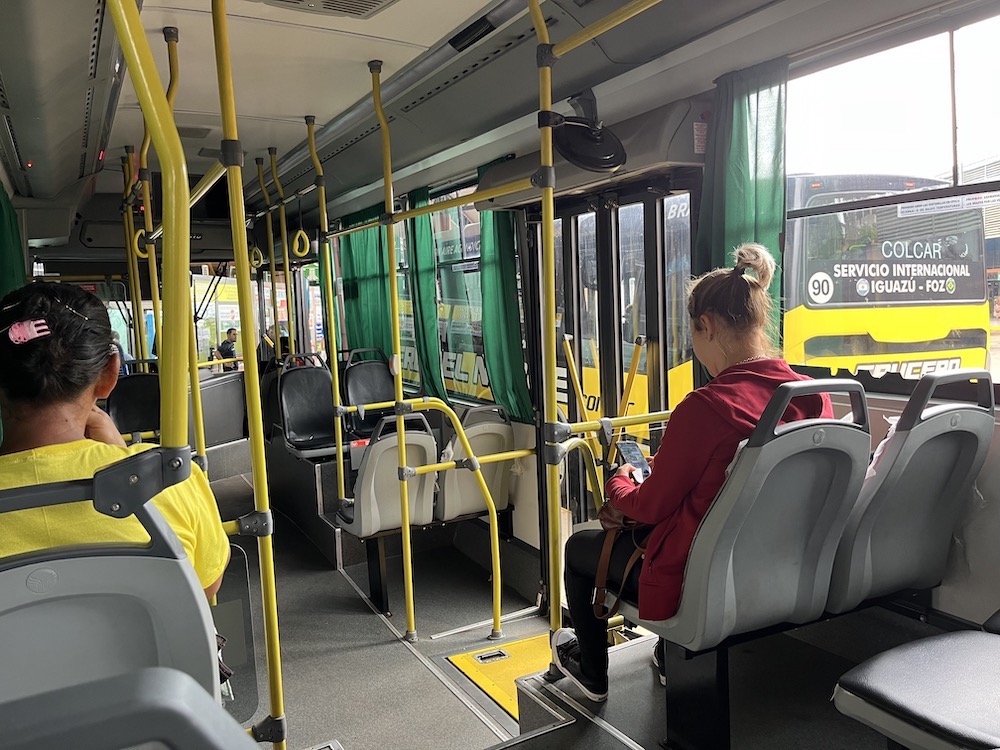
It is all about one’s preference. One can visit and compare Puerto Iguazú on the Argentine side 40,000 population and a very simple place (not the people).
FOZ DO IGUAZU, BRASILIAN SIDE
In Brazil, on the other side of the river, lies Foz do Iguaçu, a city with a population of over 400,000. It surpasses its neighboring counterparts in Argentina in terms of development in every aspect. The urban landscape of the Brasilian side is dominated by towering buildings and bustling crowds, leaving little room for a connection with nature. While it serves as a significant hub for the local workforce, the continuous degradation of the natural environment remains a major drawback in this area. But a great place to have a feel for Brazilian culture and smiles. I enjoy my visit every time.
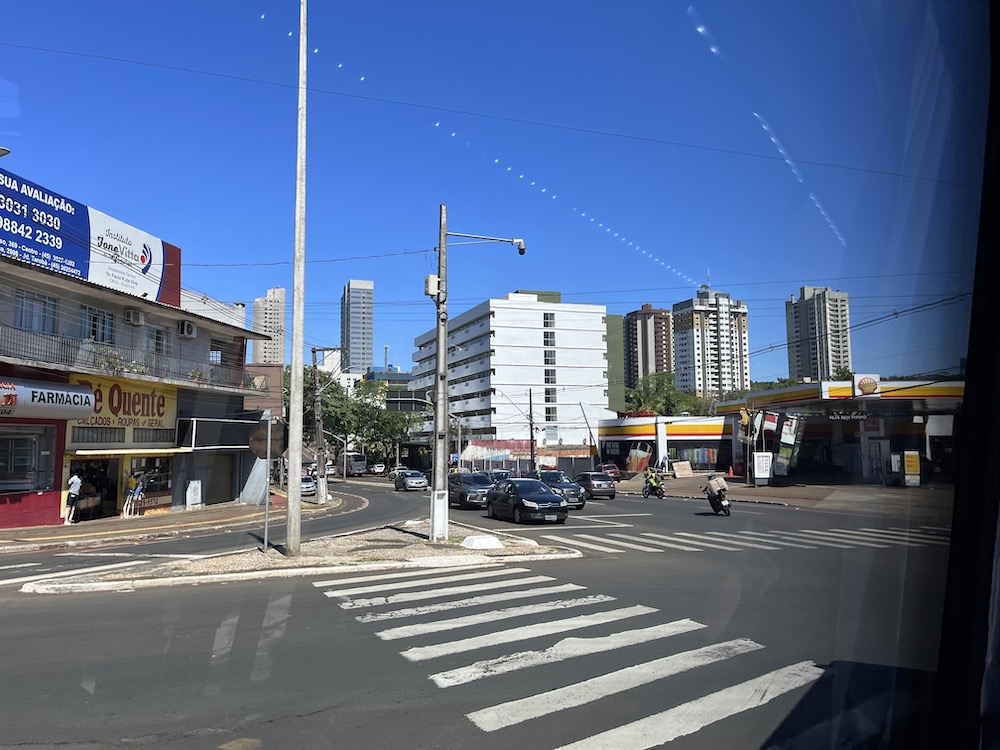
IGUAZU FALLS ARGENTINA SIDE : National Park Iguazú (Parque Nacional Iguazú:)
ONE OF THE 7 WONDERS OF THE ENTIRE WORLD
The Iguazu Falls or Iguaçu Falls are waterfalls on the border of the Argentina province of Misiones and the Brazilian state of Paraná on the Iguazú River. The Iguazu Falls consist of 275 waterfalls and 80% of them are located in Argentina. The Iguazu Falls are the largest water system in the entire world.
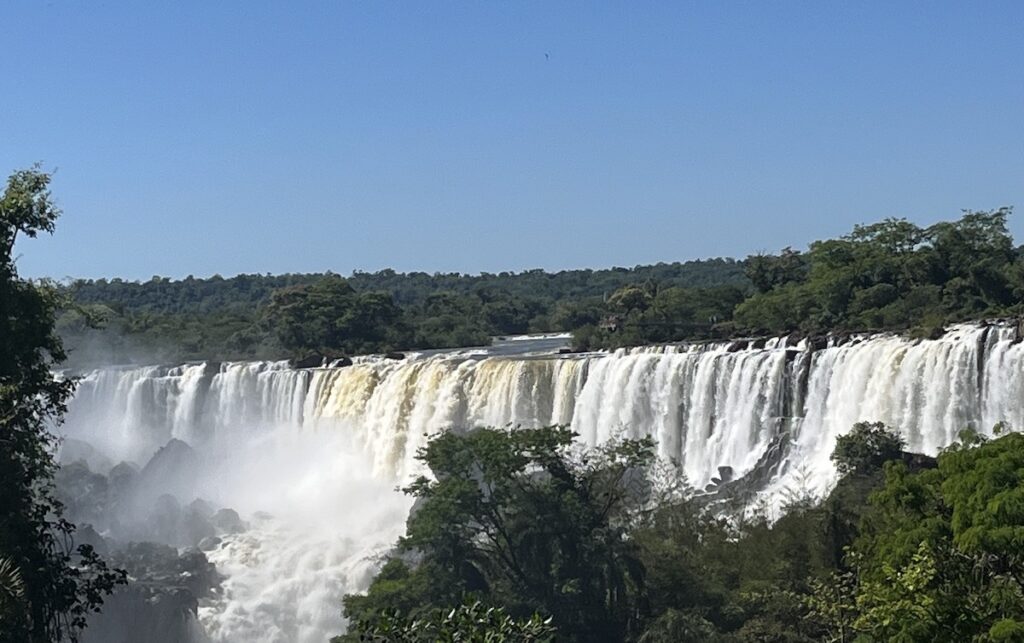
Here you find two national parks, one in Brazil in Foz do Iguaçu and another one in Argentina in Puerto Iguazú. They are both so worth visiting but I do have my favorite, and t’s all mine! 🙂
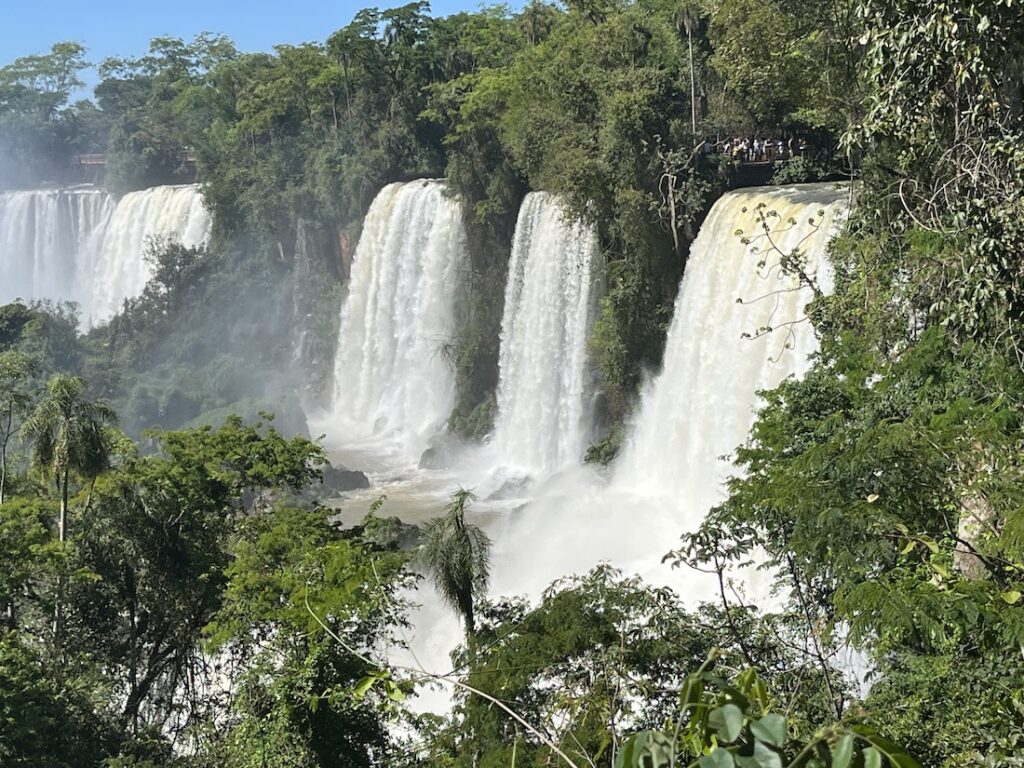
Argentina was the first country in Latin America to set land aside to protect it. However, the governments do not always follow the policies and intentions are not always clear. Nonetheless, if you travel around South America you will feel nature at its best here.
UNESCO World Heritage Site
By far my favorite place on earth, truly. The falls are on the Argentinian side and my favorite side because I can go on the trails inside and around the falls themselves. The Argentine side is great for people who walk in and out inside the falls! Some areas are great for super senior explorers. Since I love water and lush nature, this is the spot to be for sure! Also not
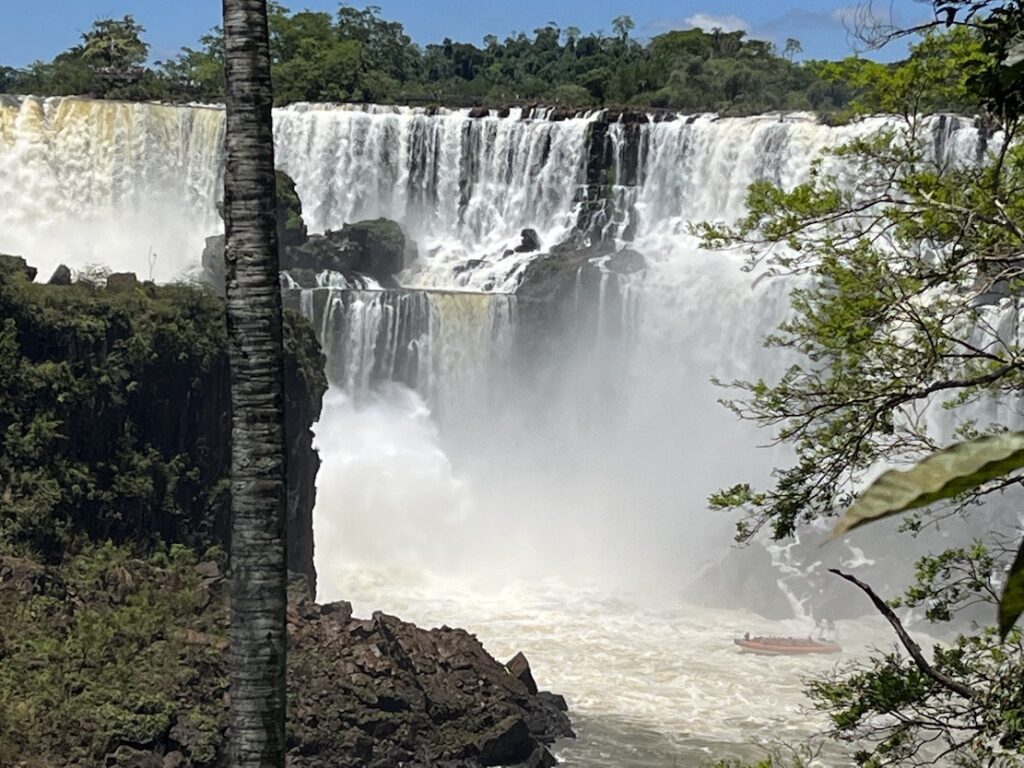
The National Park is in the middle of the jungle, it was created in 1934 and it has been declared an important area for the protection of all wildlife. The rich biodiversity in the place is of immense importance to humanity, there have been identified until today more than 450 bird species, over 2000 species of plants, and over 80 mammals.
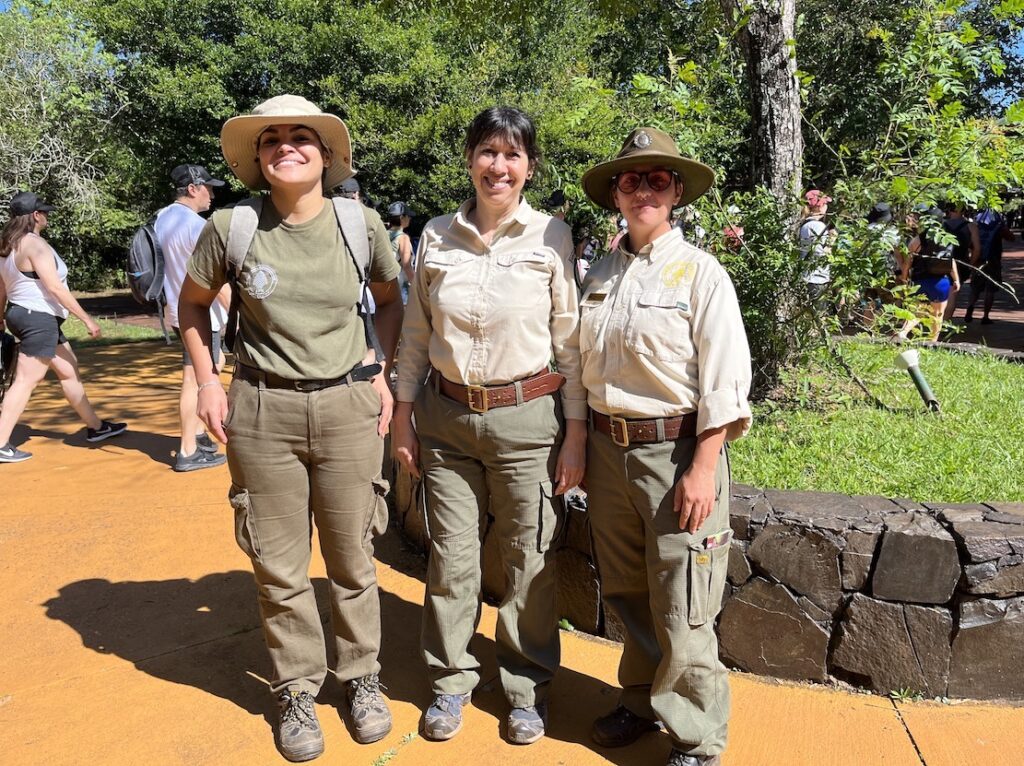
One of the interesting parts of being in Argentina is seeing how important is the women’s workforce as policewomen and park rangers.
Remember that December, January, and February are hot months and more crowded with locals who are on Summer holidays. If I say hot, it is very hot and humid during these months. Summertime in this part of the world starts December 21st and ends March 21st.
Now that I gave you my take on the Falls, and to get an accurate take on the site, l recommend visiting the official IGUAZU FALL website on the Argentina side.
ARGENTINA IGUAZU FALLS OFFICIAL WEBSITE
ENVIRONMENTAL ISSUES!!! that affect us all
The low water volumes caused by the operation of dams in Brazil, including the new Baixo Iguaçu dam, have potential environmental impacts. The deforestation on both the Argentine and Brazilian sides has resulted in catastrophic losses to the natural environment and disrupted the balance of the ecosystem. Two decades ago, I witnessed Brazil’s extensive clearing of the jungle in the State of Para to make way for soybean and rice cultivation. This not only degraded the soil but also polluted the water, leading to severe illnesses among the indigenous populations. This occurred during the presidency of Lula Da Silva.
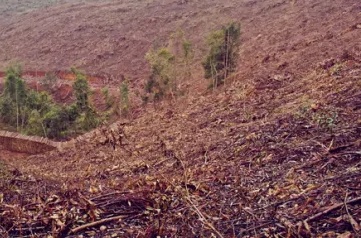
of the ecosystem affecting global warming
HUMMINGBIRD GARDEN (Jardin de los Picaflores)
The garden is just three blocks from the main bus station and a beautiful garden at the back of a private residence full of beautiful and lush plants. Once you enter the place you feel inside a storybook full of different species of hummingbirds. There are other local bird species around such as the Chalk-browed Mockingbirds, and 25 plus other species. The highlight was the knowledge and explanation of the place and species from the son of the owner of the place, A MUST for a bird and nature lover.
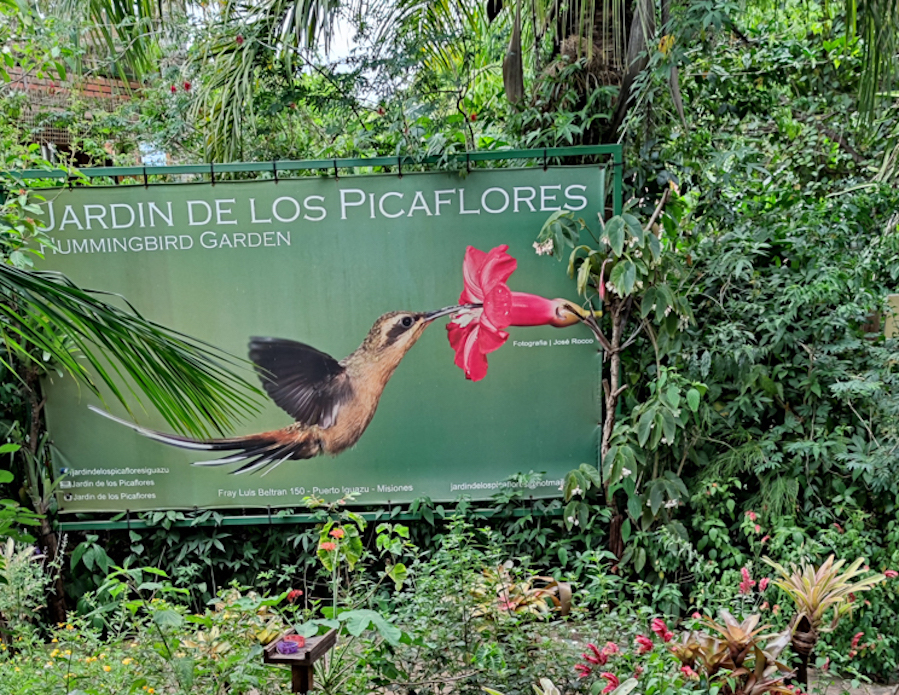
Keeping the spirit of this site, support locals who do good for nature thus all of us!!
HITO DE LAS TRES FRONTERAS VIEWPOINT (Three frontiers viewpoint)
This is a very significant place because it is the viewpoint on the Argentina side where the three countries see Paraguay on the left and Brasil on the right. The location meets and is at the confluence of the Iguazú and Paraná rivers flooded with nature. You can get here from Puerto Iguazu town and it is a nice walk, There is a monument commemorating the friendship between the three countries. The Argentine side is simple with a nice park, picnic tables, and vendors. If one likes peace and nature it is a fantastic place to be.
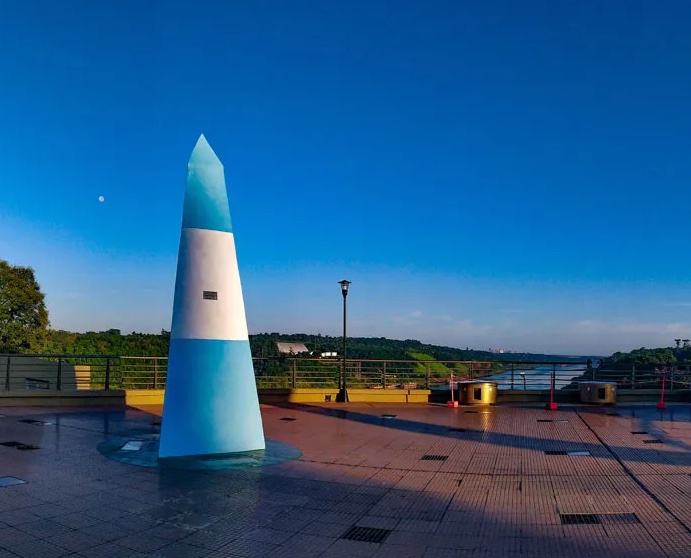
LA ARIPUCA
This is a park that is wonderful to learn about the Guarani Indigenous Peoples and the natural environment. The place raises awareness about the importance of the natural environment and how it influences the Guarani people. You can also have some snacks and purchase some trinkets without anyone being pushy.
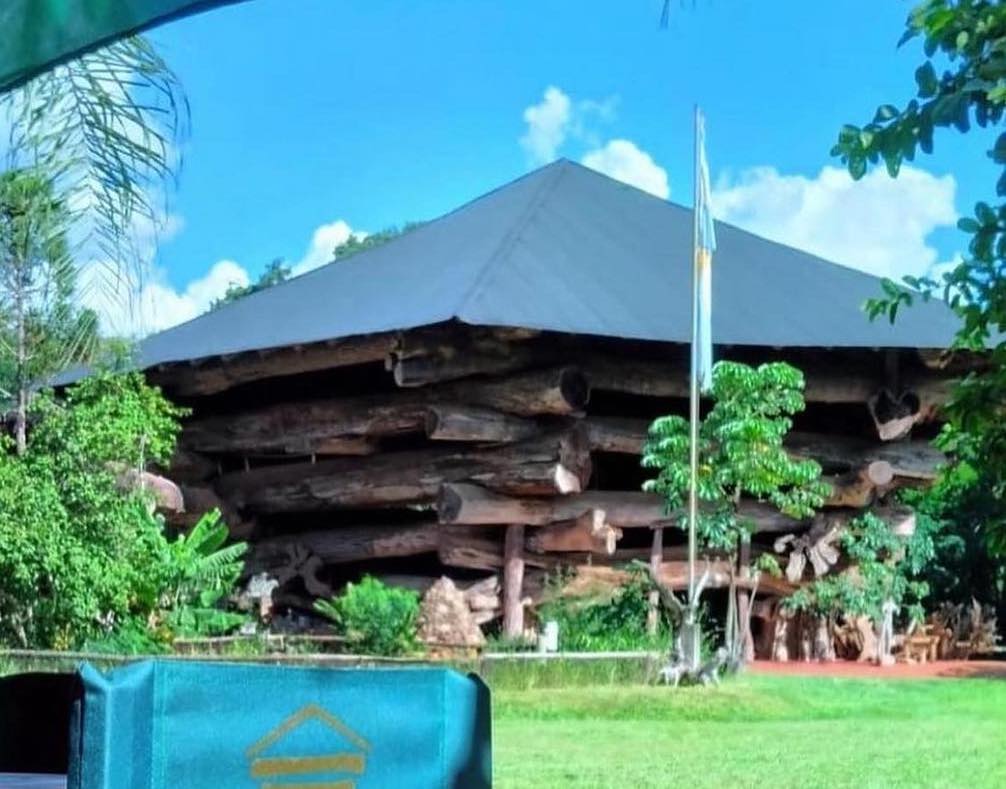
GÜIRÁ OGA WILDLIFE REFUGE
This place was an absolute paradise for me! As an animal lover, I felt like a child in a candy store here. Guira Oga, which means “home of birds” in Guaraní, is actually a sanctuary for animals. It’s not only a favorite among animal enthusiasts like myself, but also a fantastic educational destination to discover and protect the natural environment. You can learn so much about the wildlife in the jungle and its impact on the ecosystem. It truly is a remarkable place!
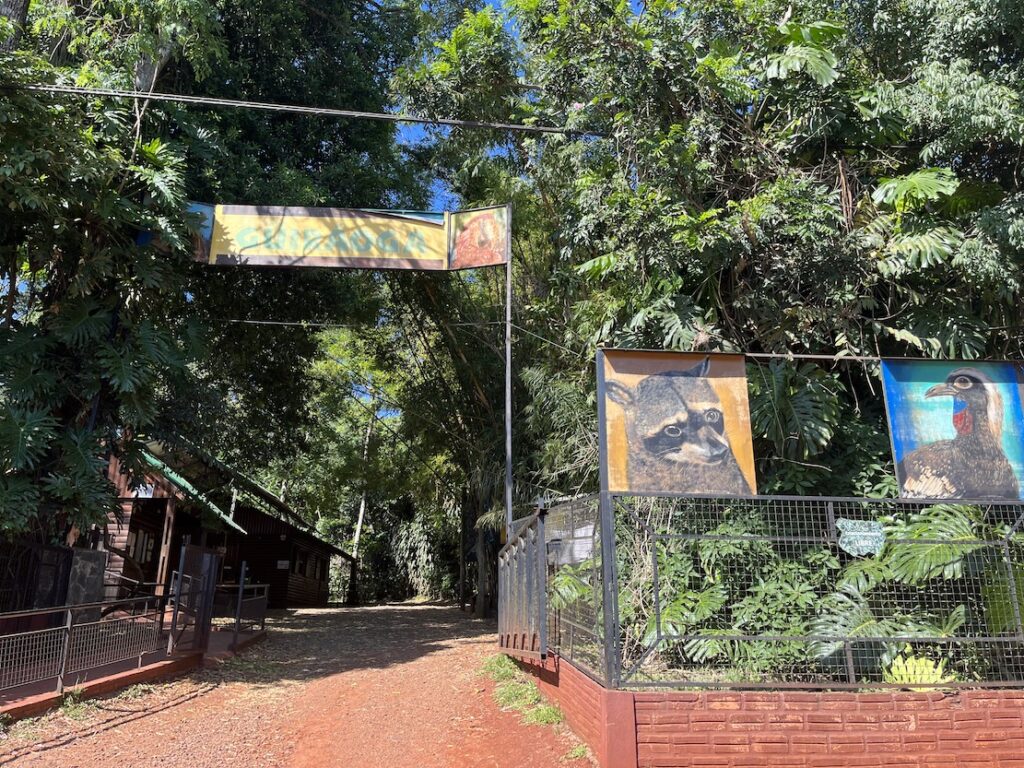
Here injured, mistreated, or ill-adopted animals are treated until they can recover and if that is not possible, those animals find a place where they can be taken care of for good. For the most part, these animals are rehabilitated to be back in the wild. The ones that can’t be put back in their natural habitats are the ones we see when we visit the center.
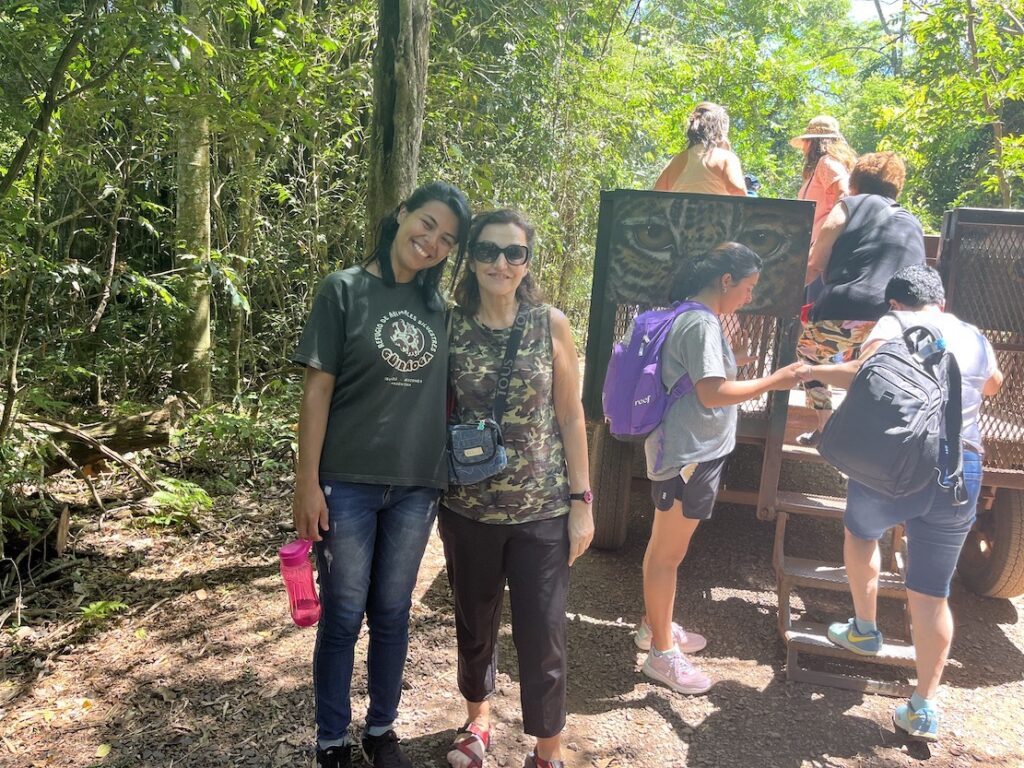
DO NOT ADOPT WILD ANIMALS! ANY BIRDS SUCH AS PARROTS! TUCANS WILD BIG CATS ANY!!! wild animals are not supposed to be pets, they are to be in the wild and to live free.
Having any wildlife animal as a pet encourages wildlife trafficking and threatens the ecosystem which is one of the natural resources crimes.
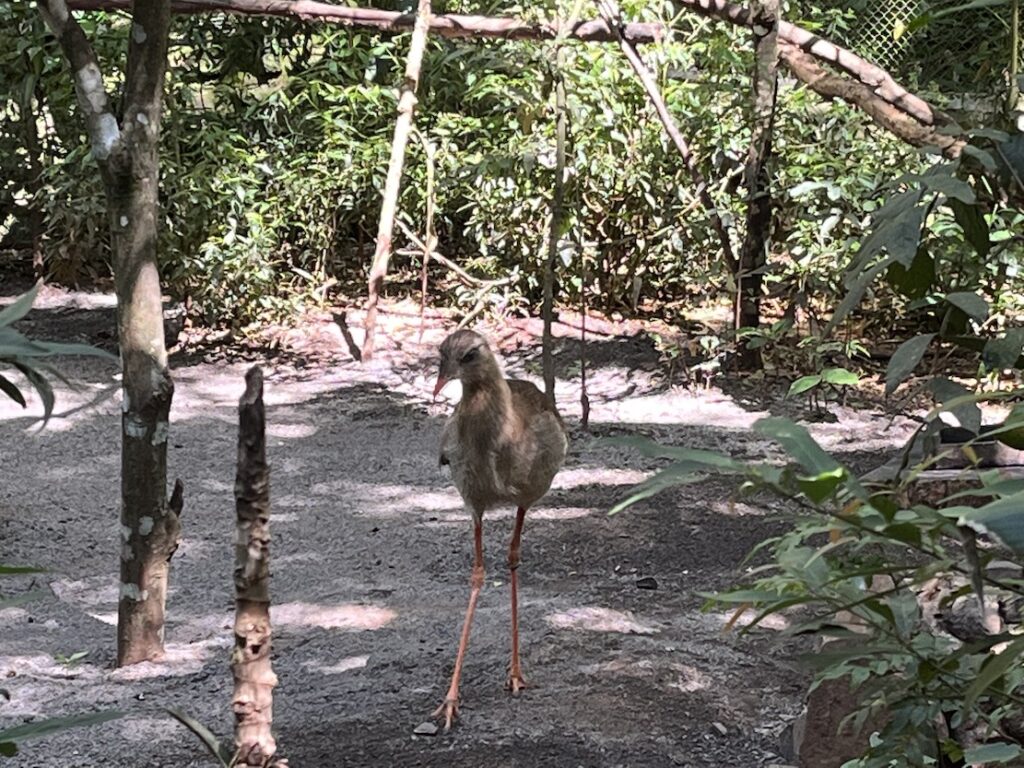
At least 12 MILLION animals are pouched every year!!
This area is vulnerable to wildlife trafficking because it is one of the largest ecosystems in the world. This trade is illegal.
MACAW STORY (GUACAMAYO in SPANISH)
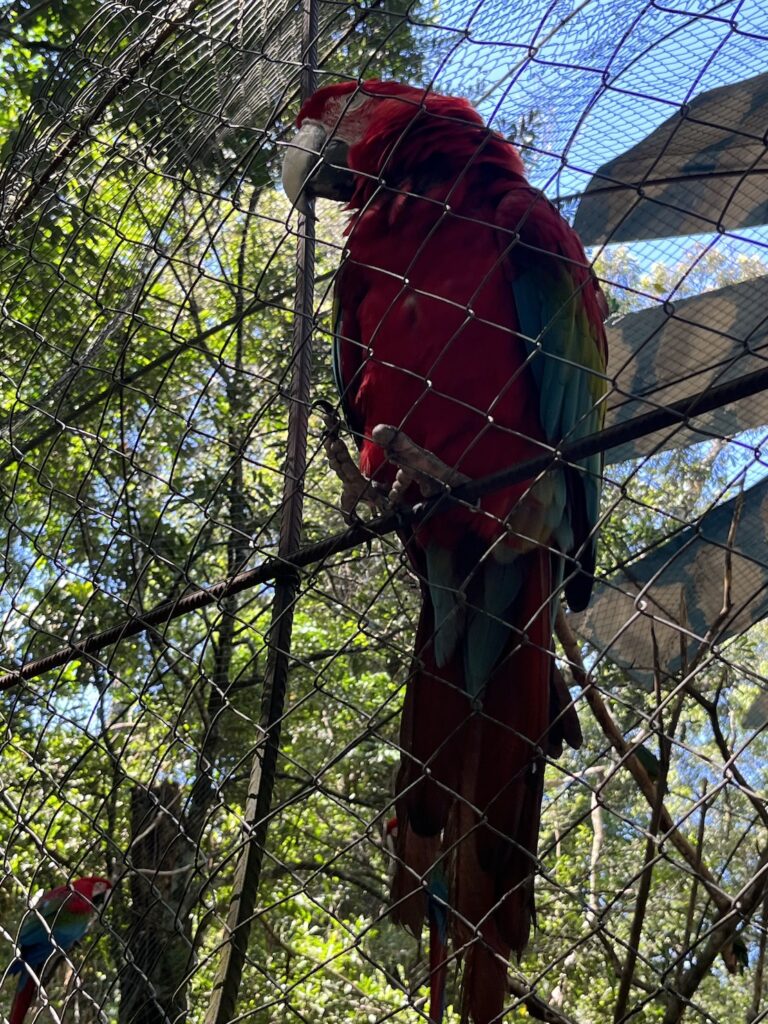
This stunning Macaw, known as a Guacamayo, is a magnificent SOUTH AMERICAN Bird found in the picture on the left. Its vibrant feathers, particularly the red ones, are characteristic of the native Argentine species in that area.
Guira Oga, an exceptional organization, excels in rescuing, rehabilitating, and providing a permanent sanctuary for wildlife. The Macaw on the left was abandoned after being kept as a pet and can no longer survive in the wild. Thankfully, Guira Oga offers a loving home for this Macaw. In the past, Argentina was home to numerous Guacamayos across the NorthEast provinces until they became extinct. However, after 150 years of extinction, organizations like REWILDING ARGENTINA (refer to the link below) have successfully reintroduced captive-born Guacamayos into the wild in 2022. Take a moment to witness and support the incredible work of this NGO. It benefits us all and represents a significant debt we owe to the preservation of wildlife.
DID YOU KNOW????
Illegal wildlife trafficking is one of the most profitable natural resource crimes. It encompasses the harvesting and selling of wildlife, and wildlife products, (including pelts, ivory, plants, and furs) to be used as medicine, fashion, food, or pets sold to consumers.
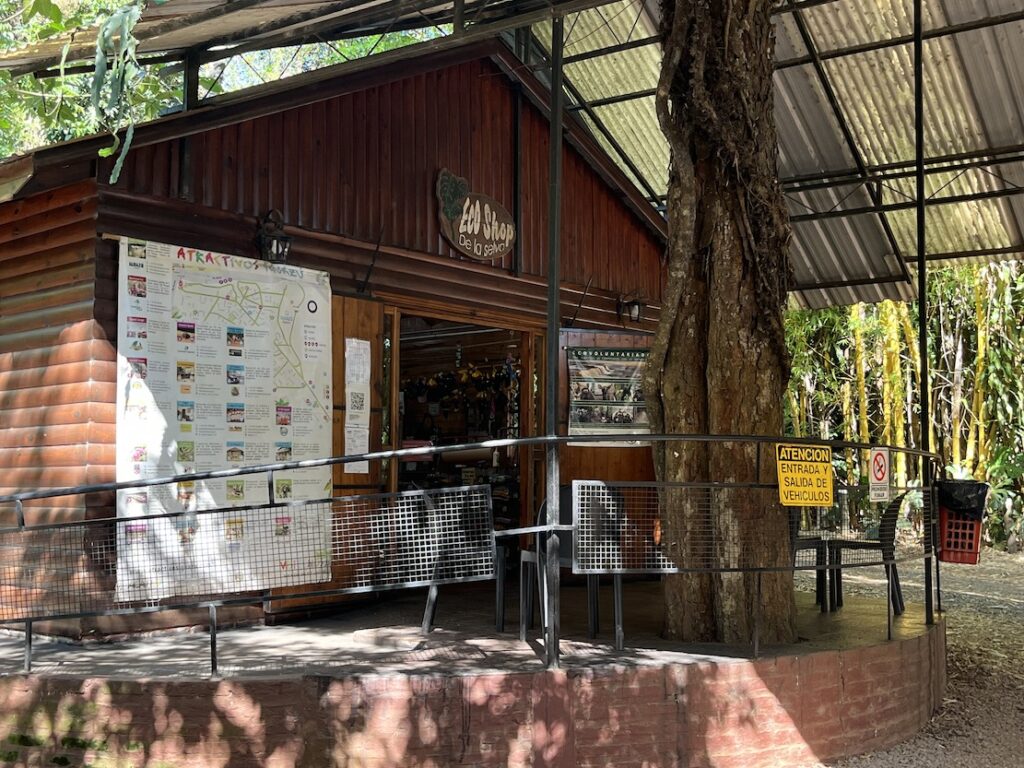
SUPPORT GUIRA OGA they do such amazing work with such few resources! Visit the place and its shop!
CALL FOR ACTION! LEAVE OUR JUNGLE ALONE!
The so-called “developed” countries often display a surprising lack of education on animal species, as they frequently adopt endangered species and wild animals as pets. The purchase of wild animal species causes the depletion and degradation of the natural environment and the animals.

STAND AGAINST WILD ANIMALS AS PETS!!! AND AGAINST
ILEGAL ORCHID TRADE
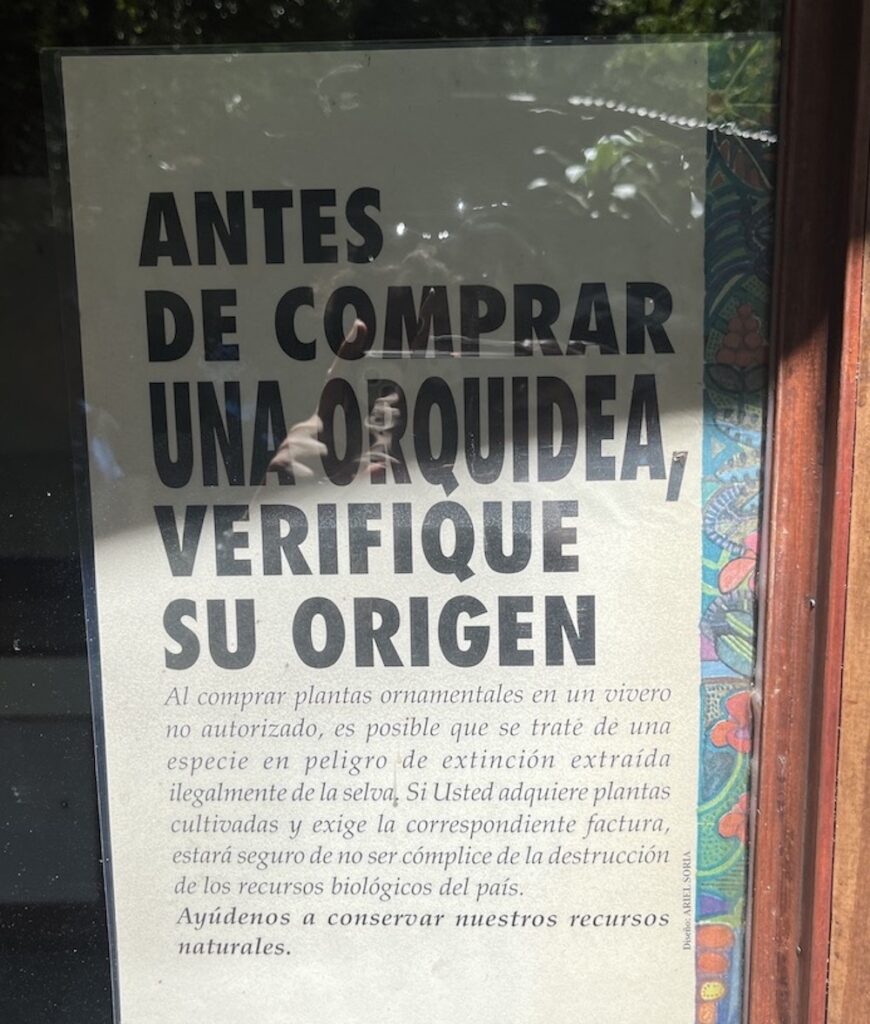
The sign on the left says “Before buying an Orchid check where it comes from…”
The rampant online promotion of exotic plants and animals has led to a disturbing increase in trafficking, resulting in the depletion of our precious ecosystem. This detrimental behavior not only harms the innocent creatures involved but also deprives us of a thriving natural environment and the diverse wildlife it supports.
Online advertisements of exotic plants and animals have left these prone to trafficking and depletion of the ecosystem that affects us all!!
The Jaguar, YAGUARETE in SPANISH, is the king of the Amazon. It is at the top of the ecosystem and without it, the whole ecosystem starts to collapse. There are other endangered feline species in the area such as the ocelot and Tigre gato.
Jaguars are making a comeback thanks to the efforts of NGOs from going extinct and the NGO below is trying its best to reintroduce Jaguars in some areas of Argentina where it was extinct due to human depletion of their habitat and reduction in prey.
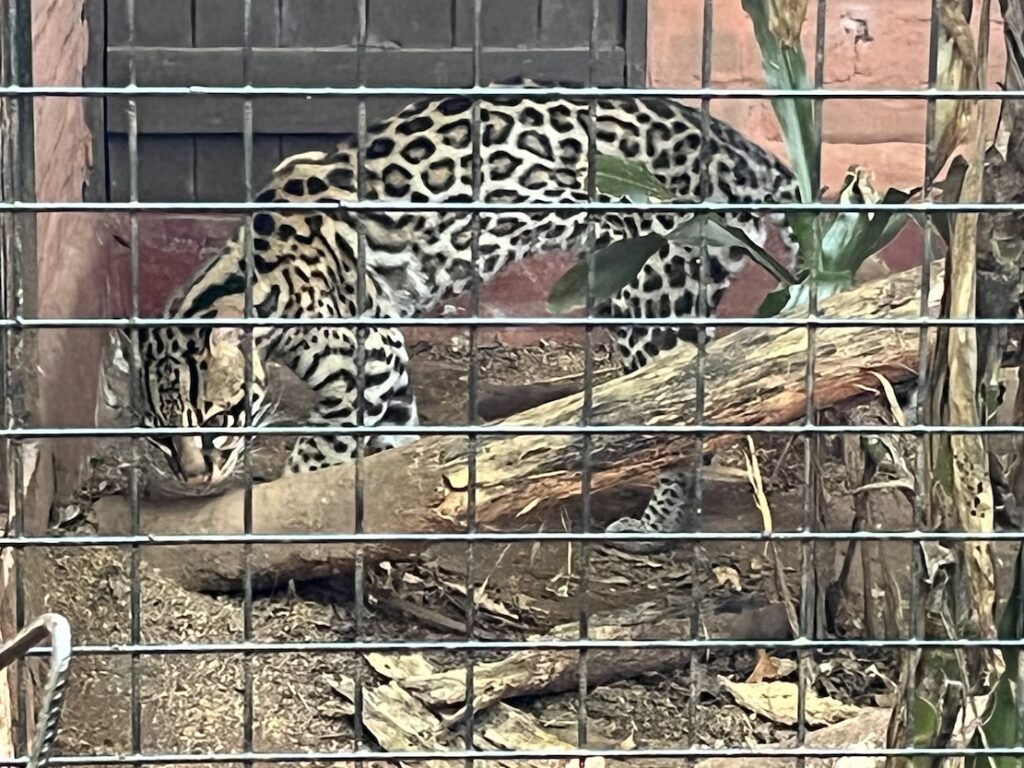
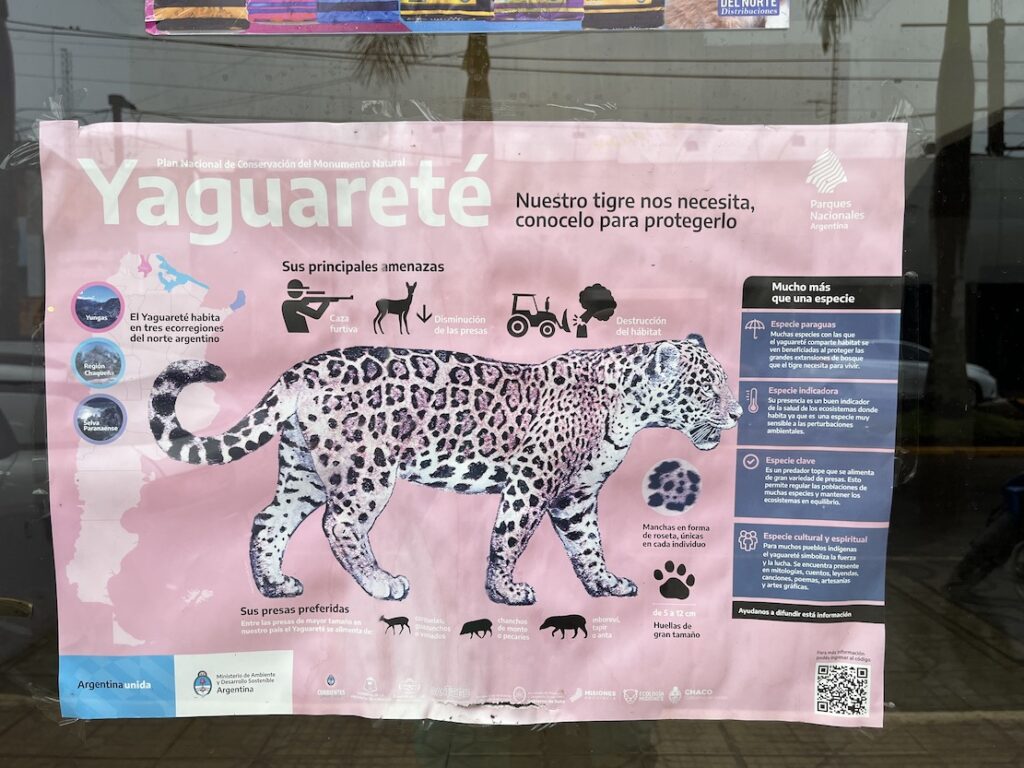
Please support this wonderful NGO organization FUNDACION REWILDING ARGENTINA which is working, among other things, on the difficult task of reintroducing species to their natural environment. It helps us undo some of the damage caused to nature.
Push the button below for more info also in ENGLISH!




